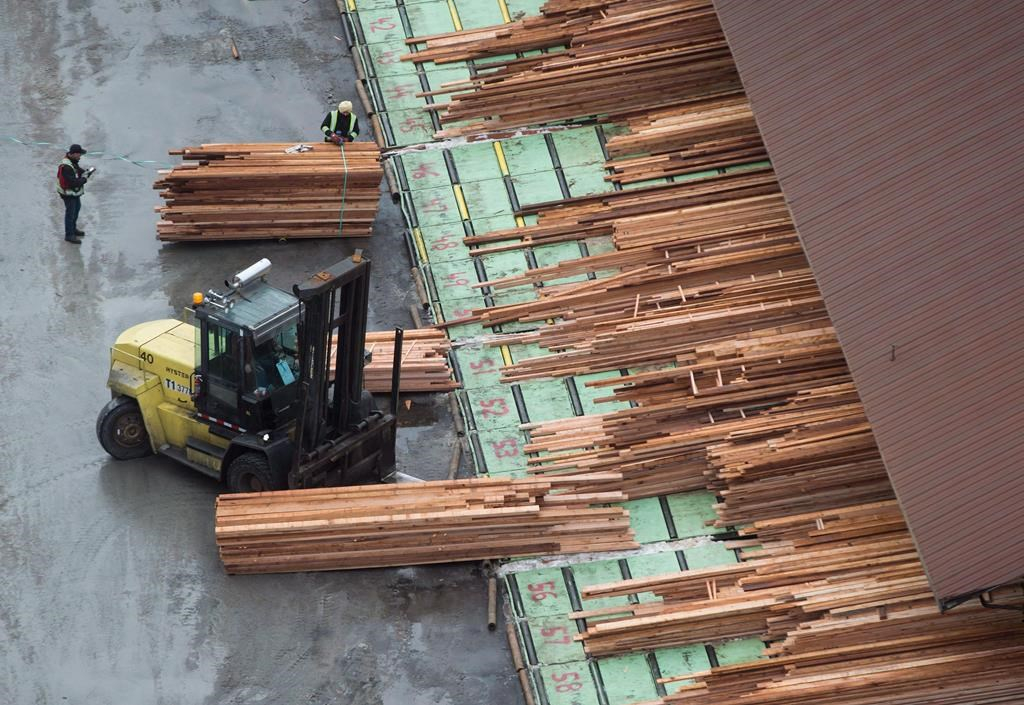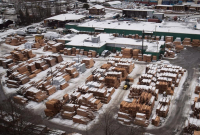Support strong Canadian climate journalism for 2025
The opening shot in a fifth softwood-lumber war between the United States and Canada is expected this week, and policy-makers north of the border are preparing to calculate the potential damage of American duties.
The U.S. Commerce Department is likely to announce Tuesday the first of two anticipated duties on Canadian softwood, which would be applied on Canadian imports as they were in disputes in the 1980s, 1990s, and early 2000s.
Canada's central bank cited in its latest policy review uncertainty in lumber as a reason behind increased prices, and a slowdown in shipments; its governor said Saturday the impact would become easier to gauge after the specifics of duties became known.
But parts of the country would feel the effects, Stephen Poloz said.
"If there's going to be some sort of countervailing duty that raises the price of Canadian lumber — chances are that's going to cause lower exports. It would make U.S. lumber more competitive, relatively speaking," the Bank of Canada governor told reporters during international financial meetings in Washington.
"It is an important business for Canada. It's got a lot of employment in it. It's geographically diverse. So it matters."
Lumber isn't the only Canadian industry bracing for potential U.S. action. President Donald Trump has complained about that industry, plus dairy, and energy. Next week, Trump will release his proposals for tax reform — it's not yet clear whether he will favour a kind of import tax.
As for the value of potential softwood duties, an analyst at RBC Capital Markets, Paul Quinn, said recently he anticipates a "shock and awe" move with duties in the range of 30 to 40 per cent.
The past dispute started in 2001 with U.S. penalties of 27.22 per cent for countervailing duties, and anti-dumping duties ranging from two to 16 per cent for different companies.
The root of the recurring softwood disputes stems from the U.S. industry's contention that Canada unfairly subsidizes its lumber by providing cheap access to public land. It's led to a cycle of American punitive action, followed by trade cases mostly won by Canada, and then a compromise settlement.
The impact of the dispute varies between Canadian regions, which have different lumber regimes.
But a CIBC paper last year found that, in the most recent dispute that stemmed from 2001 to 2006, western cedar exports to the U.S. dropped 36 per cent in the first six months, before stabilizing to 90 per cent of their long-term average.
Over the course of that lumber war, duties were lowered in 2004, and, after repeated court fights, the countries reached a settlement in 2006 that set conditions on Canadian imports.
Memories of that last dispute linger in the U.S. Capitol and could affect upcoming NAFTA negotiations. U.S. lawmakers remain miffed their industry lost court cases in NAFTA's dispute-settlement system and want the relevant chapter, 19, scrapped or overhauled in a future NAFTA.




Comments